These 6 common curtain mistakes will make your windows look terrible – here's how to avoid them
If there's anything worse than a bare window, it's a window with curtains that aren't fitted properly. Here are 6 of the most common mistakes and how to fix them

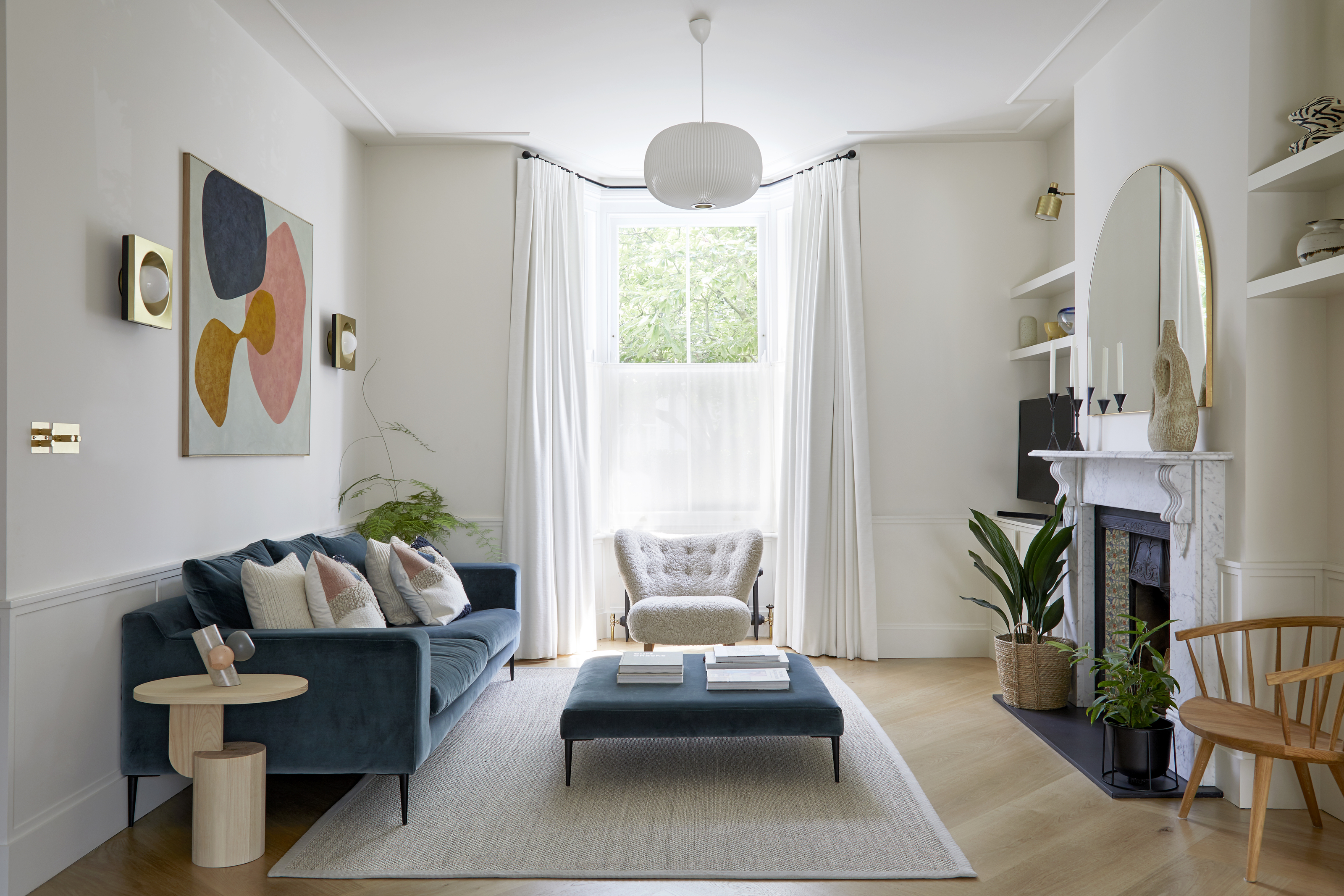
The Livingetc newsletters are your inside source for what’s shaping interiors now - and what’s next. Discover trend forecasts, smart style ideas, and curated shopping inspiration that brings design to life. Subscribe today and stay ahead of the curve.
You are now subscribed
Your newsletter sign-up was successful
When it comes to designing a room, we tend to focus on what we consider the most impactful features; the color on the walls, the style of the furniture, and the flooring beneath our feet. However, one vital space that holds just as much power but is commonly overlooked is our windows - or, more specifically, the curtains or drapes they're dressed with.
First and foremost, curtains have a practical benefit - they block out the light, allow for privacy, and keep in warmth - but they also have aesthetic benefits, too. From the various styles to the pattern of the material, curtains and drapes can add color, texture and character to a room. And let's face it, a bare window just lacks that homely feel.
But choosing the perfect curtain ideas for your windows is more technical than you may think. Beyond choosing the right look for your style, nailing the size and proportions is vital to achieving a cohesive feel. Failure to do so can affect the light levels in your room, the perception of its size, and make your windows look, well, not quite right.
From choosing the wrong length to positioning them incorrectly, there's a lot that can go wrong when it comes to fitting your curtains. Fortunately, these experts are on hand to share the worst curtain mistakes they encounter and how to avoid them.

Lilith is an expert at following news and trends across the world of interior design. She's committed to sharing articles that help readers make the best choices for their homes, including the common design mistakes they should avoid. For this piece, she spoke with designers and curtain experts for advice on how to master the perfect look for your curtains
1. Ordering curtains that are the wrong length
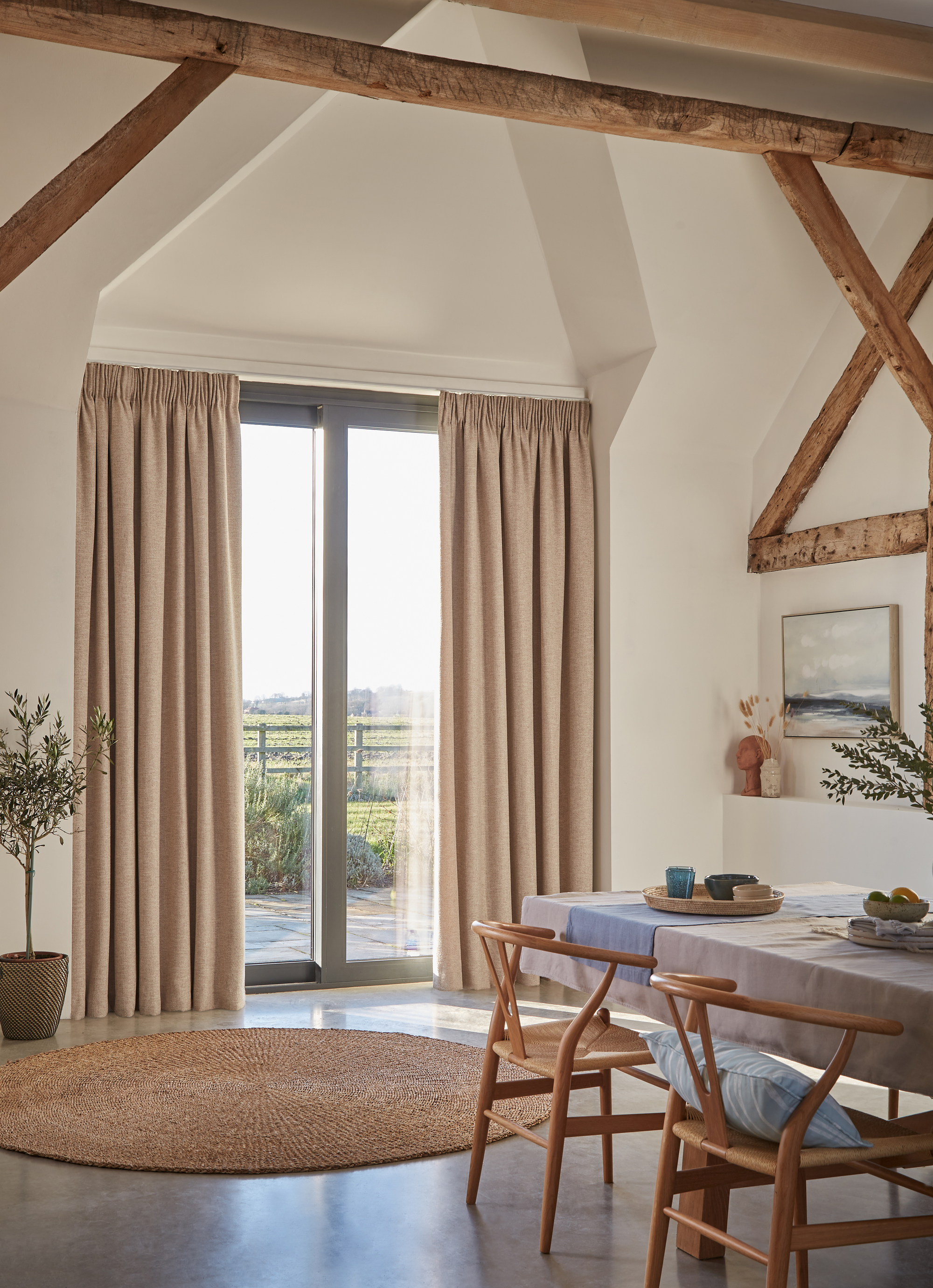
Unsurprisingly, one of the most common curtain mistakes is ordering the incorrect length. Not only do curtains that are too long or short just look odd, but they won't block out light efficiently, either, so we should really be going to great lengths to get them right.
But when it comes to how to measure curtains, how long should they really be? 'When it comes to the length of your curtains, it's safe for them to be too long, but never allow them to be too short,' says Amy Wilson, interior designer for 247 Curtains. 'Curtains should always touch the floor and for an added touch of luxury, let them pool slightly onto the floor by allowing an extra couple of inches to your measured drop.'
For the perfect proportions you should get your curtains made to measure, however, if you find that the curtains you've purchased are slightly too short, you might be able to adjust your fixture. 'The beauty of curtains is there is margin for error when using a pole or track as you may be able to lower this if your curtains are falling a little too short,' says Amy. If you prefer curtains that don't go all the way to the floor, she suggests opting for a roman blind instead.
The Livingetc newsletters are your inside source for what’s shaping interiors now - and what’s next. Discover trend forecasts, smart style ideas, and curated shopping inspiration that brings design to life. Subscribe today and stay ahead of the curve.
In certain cases, like when you have a heater or a piece of furniture below your window, you might want to opt for a curtain length just below the sill. This is favorable to the other traditional option which hangs just above the sill as it will still block out external light and draughts. Ideally, your curtains will sit about 6 inches below your window sill.
2. Choosing a design that doesn't gel with your room's style
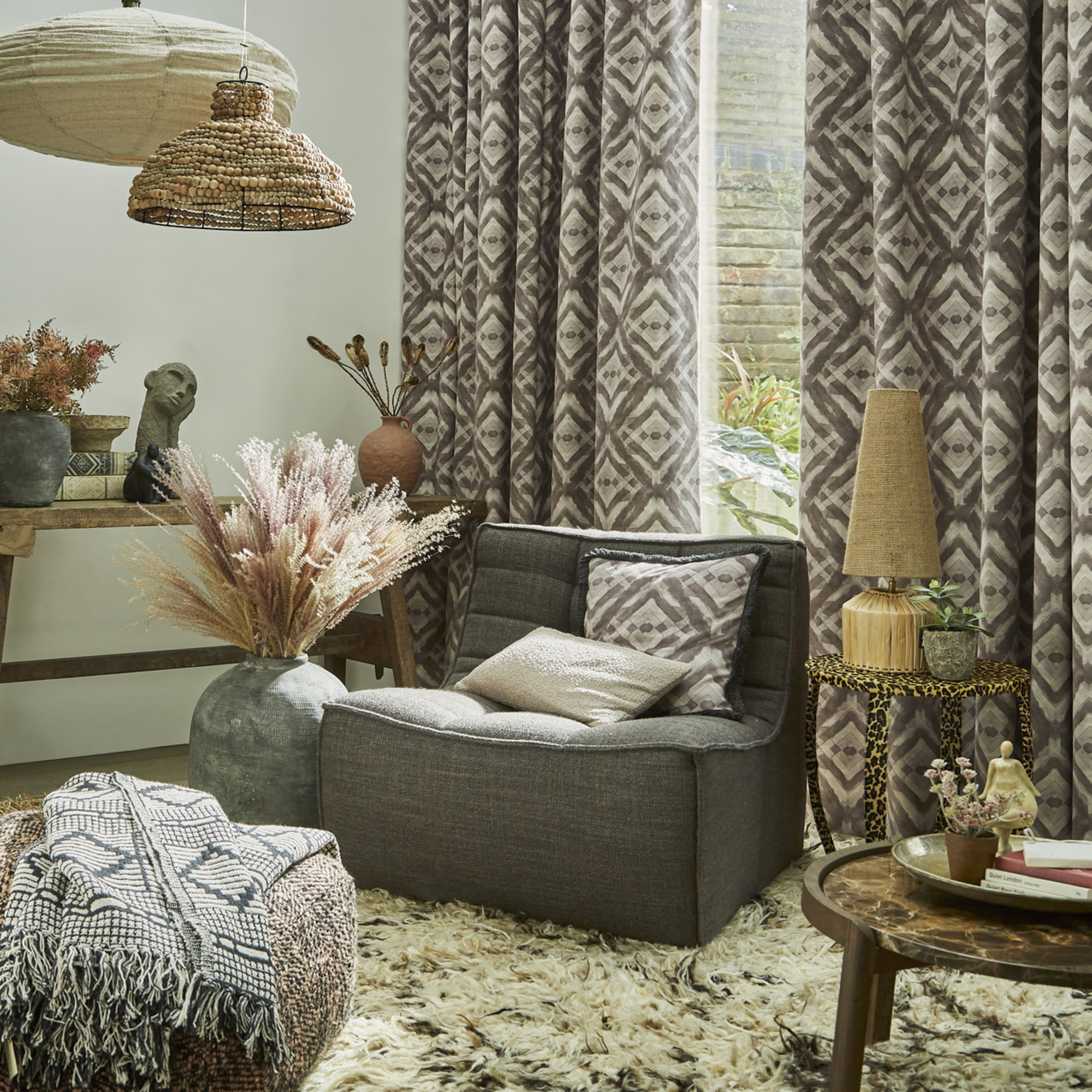
Another reason why your curtains might look out of place is that you've chosen a design that clashes with the rest of your room. Your curtains or drapes should work to bring the space together, but without matching too closely with other patterns or materials used elsewhere.
'For an opulent and maximalist scheme, you should consider clashing patterns like floral curtains against a backdrop of striped wallpaper or bold paint,' says Amy. 'Alternatively, for a more muted and pared back look, opt for a plain fabric that ties in with your decor.'
Choosing bright patterned curtains in a room with a neutral color scheme will be garish and overwhelming. Likewise, sheer curtains in a bold room full of strong colors will disrupt the room's harmony. Think of your curtains like any other element of your design and decor - they have to fit.
On the flip side, opting for curtains that match too closely with other soft furnishings in the space should also be avoided. As Amy explains: 'This can leave a room feeling cheap and flat.'
3. Not accounting for the 'stack-back'
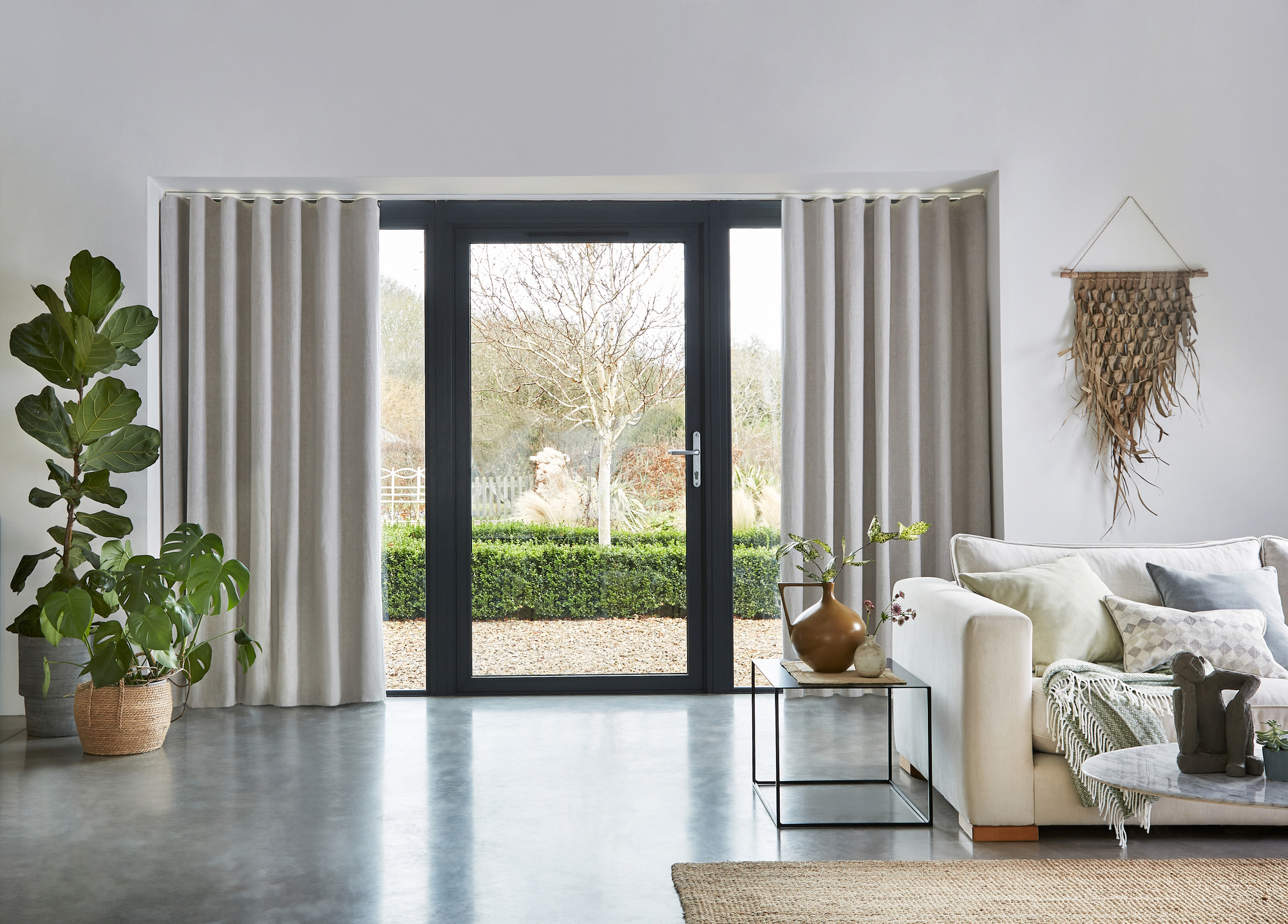
For many people, the term 'curtain stack-back' is an alien one, but it's an important piece of terminology to know when it comes to choosing the perfect curtains for your space.
In simple terms, it means the room on the sides of your windows for the material to bunch up when drawn open. 'Not allowing for enough stack-back means that your drapes will block some of the light coming through the window when all the way open,' explains Davina Olgivie, founder of Wovn Home.
Knowing the meaning of the term is all well and good, but exactly how much room should be accounted for a curtain stack-back? 'Generally speaking, “high and wide” is a great rule of thumb to remember,' says Davina. 'A general guide for linen or midweight fabrics is to add 15% of your window width for the stack-back. So if your window is 50 inches wide, with the stack-back, the width is 57.5 and this would be the length of your rod.'
Bear in mind that this will differ depending on the weight of the fabric used. Weightier fabrics, like those that are thermal lined (one of the best window treatments to save on your energy bills) will need extra space when drawn back than, say, sheer curtains.
4. Not considering the purpose of your curtains
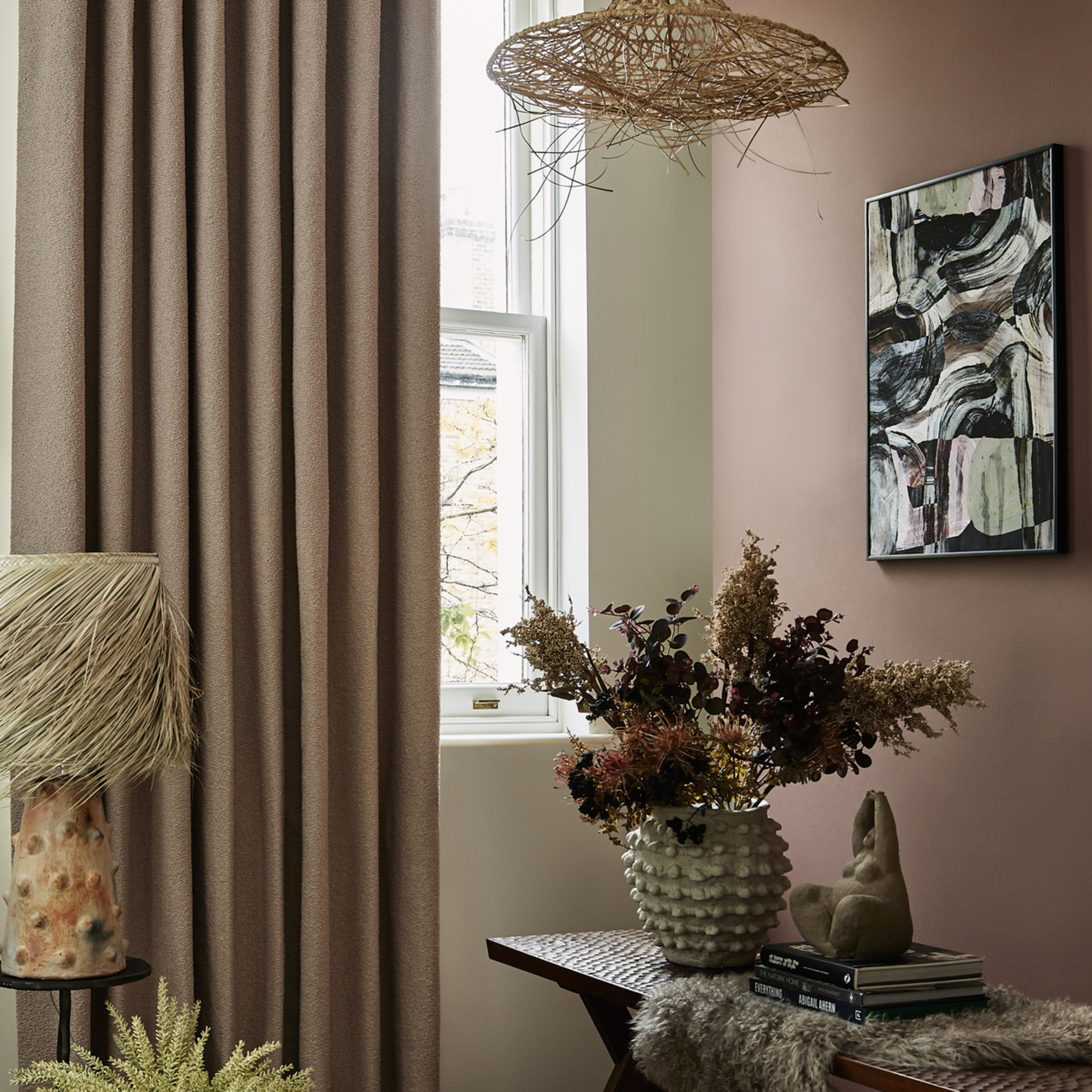
As far as curtain mistakes go, this point might sound unnecessary. Surely curtains serve their basic purposes whether you give them any thought or not? Yet, in certain rooms, our curtains serve different purposes.
Take a bedroom curtain idea for example. In this room, the primary aim of your curtains is to block out light. However, in a living room that faces the street, you might want sheer curtains that allow for light while also providing privacy.
'Not considering the purpose of your curtains is one of the biggest mistakes you can make,' says Yvonne Keal, Senior Product Manager at Hillarys. 'Unwanted glare on computer or TV screens is one of the most common dilemmas we come across, especially since the shift to home working where unwanted light shining on your tech is not only irritating but can cause a dip in productivity.'
In cases light a home office, simply drawing curtains isn’t a straightforward option as you also want to make the most of the natural daylight. 'This is where your research comes in,' adds Yvonne. 'Voile curtains are stylish, sheer and let the natural light filter into your room but will crucially prevent glare.' Factors like should always be taken into consideration to ensure you have curtains tailored to the needs of your room.
5. Positioning your curtains at the wrong height
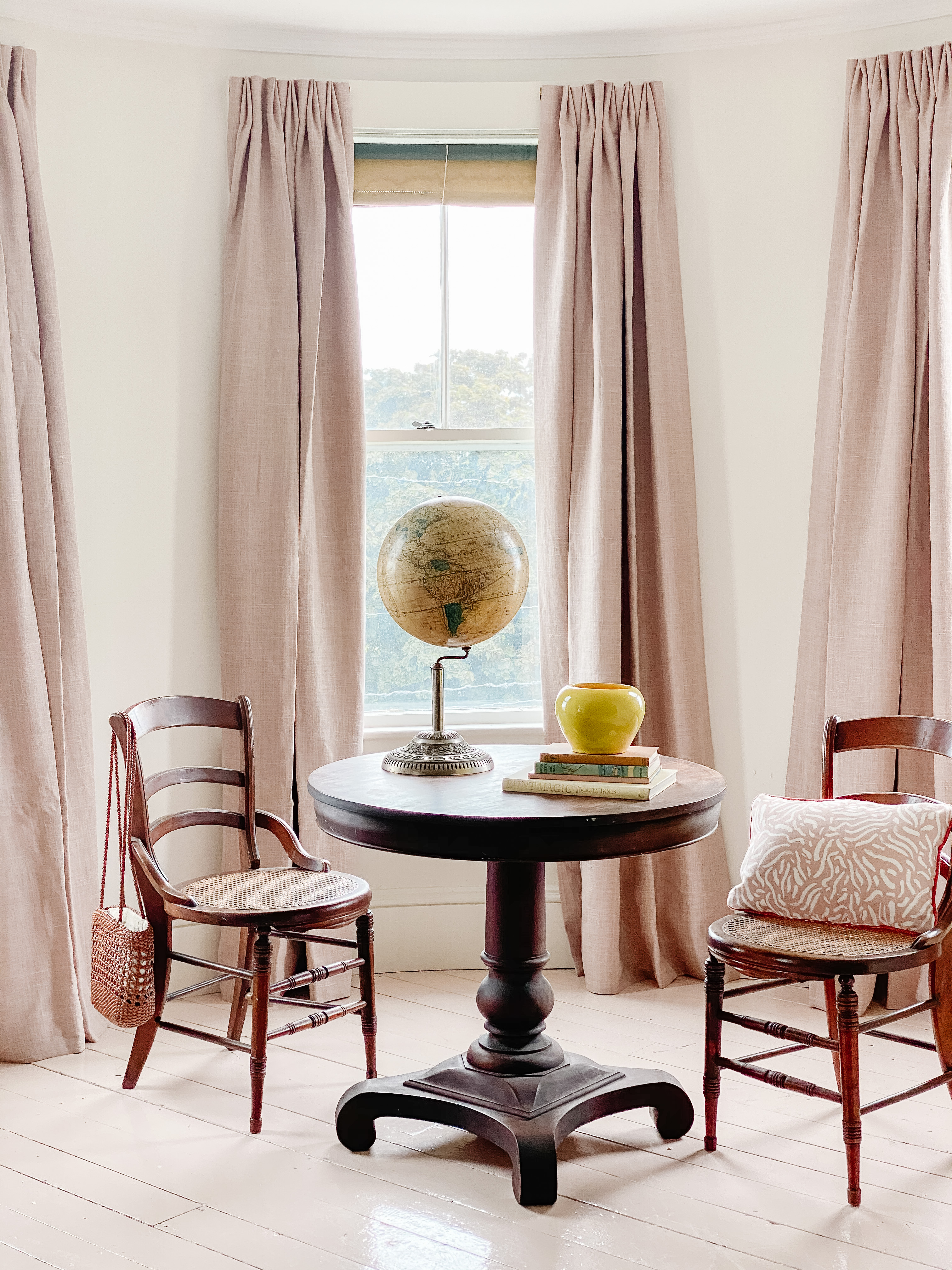
Even if your curtains are the ideal length, you can easily get them wrong by positioning them at the incorrect height. The space between your rod or pole and the top of your window frame is often misjudged during DIY fitting.
So, what's the trick for how high to hang a curtain rod? 'To add to your room’s sense of height, have your curtains fixed several inches above the top of the window frame,' says Yvonne. 'You may also need to consider what surrounds your window. For instance, if there is a radiator near the window the curtain length may need to be altered.'
Although this sort of mistake probably isn't the first one a guest will notice, placing your curtain pole too high can really throw off the balance of your room. If you're worried about getting the positioning right, it's best to hire a professional fitter. As Yvonne explains: 'Your curtains are something you will see every day that affect the overall ambiance of your space, so it's best to consult an expert rather than attempting DIY.'
6. Not using the right curtain hardware
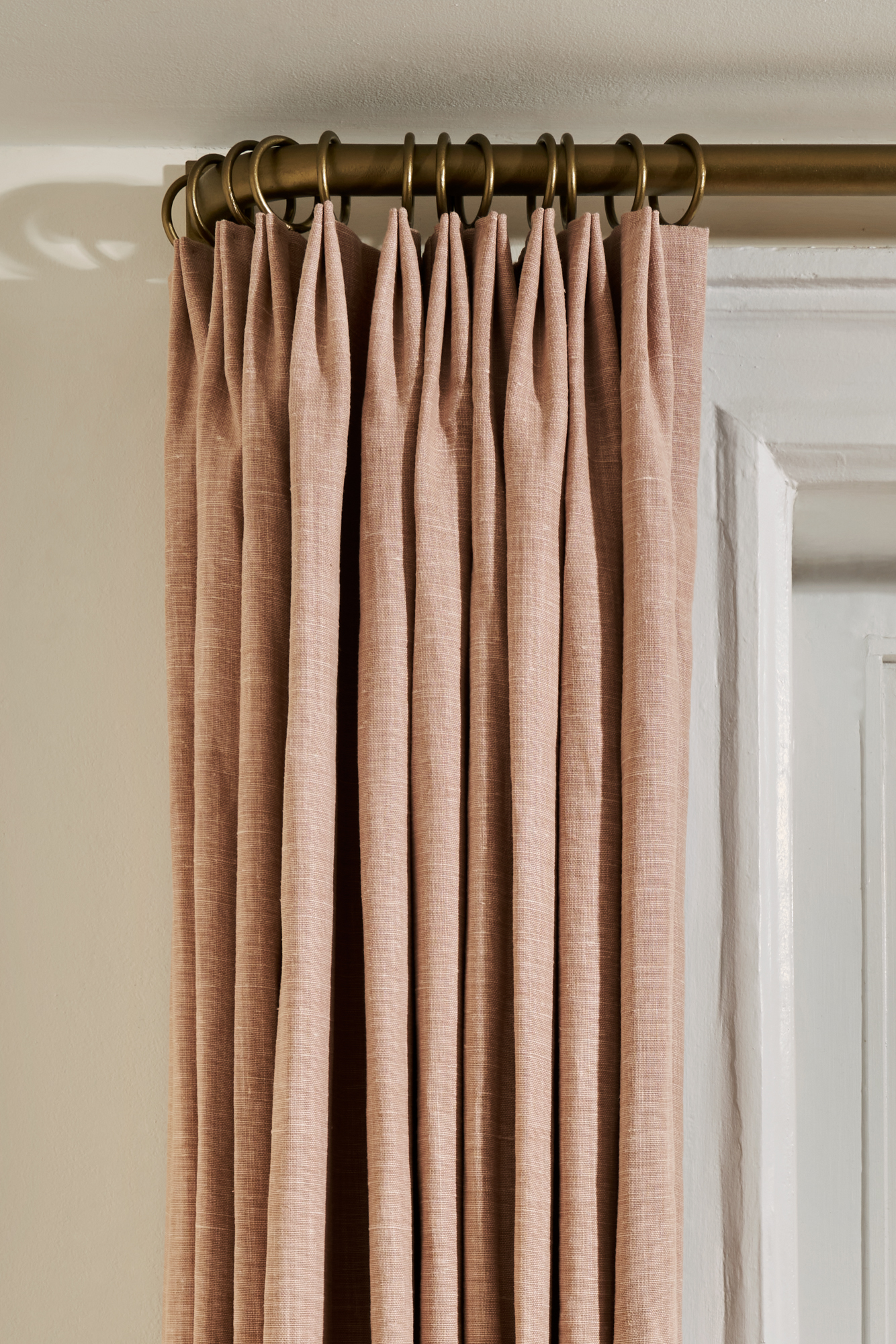
Curtains and drapes are a lot more than the piece of material that hangs in your window - there are poles, rails, rings, hooks and holdbacks involved too.
It's important to choose hardware the fits with the design of your curtains as well as the overall style of the room. 'For example, if you enjoy plenty of bright and bold colors, try painting a wooden curtain pole in a bright teal, orange or pink,' says Amy.
For a cohesive living room curtain idea, opt for brass holdbacks if your room has an industrial feel, or matt black steel for an even more modern look. Go for linen tiebacks for a soft and traditional vibe, or decide against holdbacks altogether. Whatever you do, just think it through.
There's also the practicality of the hardware used in your window dressings to think of. It's important you choose a pole or rail that can hold the weight of your curtains or drapes.
'Custom drapes are much heavier than off the shelf curtains as they use more fabric to create fullness and are often lined,' explains Davina. 'A telescoping rod will usually not be strong enough and sag in the middle with the weight of custom draperies. Custom rods however are made of solid strong material, usually iron or steel, and cut to the exact length needed.'

Lilith Hudson is a freelance writer and regular contributor to Livingetc. She holds an MA in Magazine Journalism from City, University of London, and has written for various titles including Homes & Gardens, House Beautiful, Advnture, the Saturday Times Magazine, Evening Standard, DJ Mag, Metro, and The Simple Things Magazine.
Prior to going freelance, Lilith was the News and Trends Editor at Livingetc. It was a role that helped her develop a keen eye for spotting all the latest micro-trends, interior hacks, and viral decor must-haves you need in your home. With a constant ear to the ground on the design scene, she's ahead of the curve when it comes to the latest color that's sweeping interiors or the hot new style to decorate our homes.